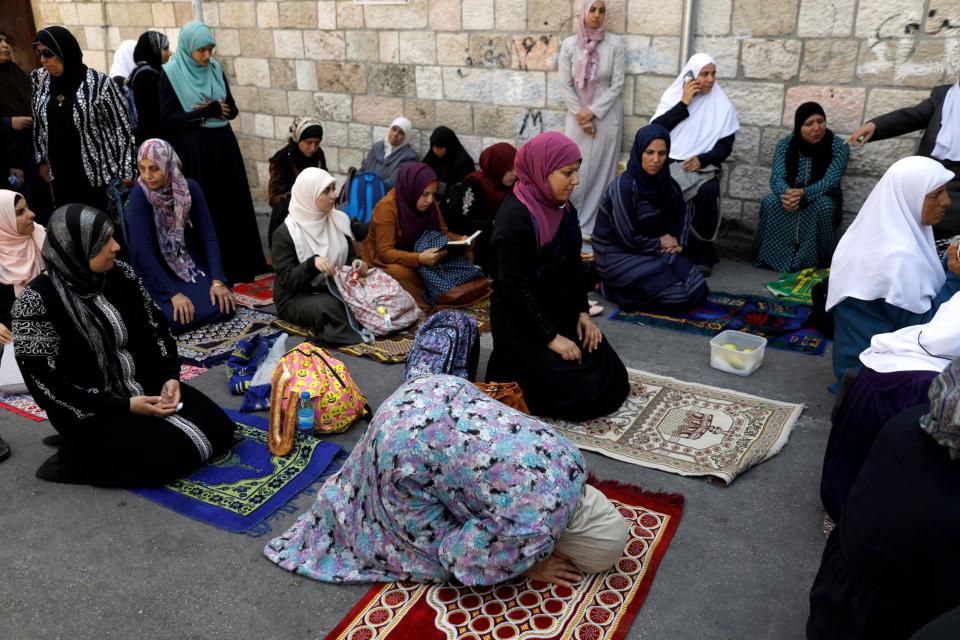Palestinians continue protest at Jerusalem holy site despite Israeli attempts to diffuse growing 'Temple Mount' crisis

Palestinians in Jerusalem have once again met to pray outside the al-Aqsa mosque, rather than inside it, in an ongoing protest against perceived Israeli attempts to control access to the religious site.
Worshippers completed morning prayers outside the compound on Wednesday morning, despite the Israeli authorities’ decision to capitulate to Palestinian demands to remove metal detectors from the entrance to the al-Aqsa mosque.
Al-Aqsa is located inside the the city’s Noble Sanctuary, as it is known in Islam, or ‘Temple Mount’ in Judaism.The site is considered holy by followers of both religions, and as such is frequently the subject of tensions in the Arab-Israeli conflict.
Two Israeli guards were killed by Palestinian attacks outside the compound earlier this month, prompting the Israeli government to step up security at the site, including metal detectors, new railings, CCTV and a ban on entrance for Muslim men under the age of 50.
Access to the compound has always been a hugely politically sensitive issue. While it is located in East Jerusalem, which was annexed by Israeli in 1967, the Muslim-administered site has been operated by neighbouring Jordan in order to avoid conflict.
The new measures were met with outrage by Palestinians and across the Muslim world, sparking protests and violence which led to the deaths of at least four Palestinians in street clashes and the murder of three Israeli settlers in their home in the occupied West Bank.
Following international concern over the growing crisis, the Israeli cabinet voted on Monday to remove the metal detectors. However, the capitulation was not seen as good enough by many Palestinians, and high-profile calls for protests to continue have been heeded.
The Waqf religious body which runs the site, and head of Jerusalem’s Supreme Islamic Committee Ikrema Sabri, said on Wednesday that legal action is being considered to force the Israeli authorities to remove all the new measures – including sophisticated CCTV technology which can supposedly identify concealed objects.
Palestinian Authority President Mahmoud Abbas also reiterated that the current freeze on contact with Israel will remain in place until the status quo in Jerusalem is restored.
International observers, including the UN’s Middle East envoy Nickolay Mladenov, have urged both sides to come to a resolution before Friday prayers, which usually draw tens of thousands worshippers, take place.
The tensions could spread “well beyond” Jerusalem if there was disruption on the Muslim holy day, he warned.

 Yahoo News
Yahoo News 